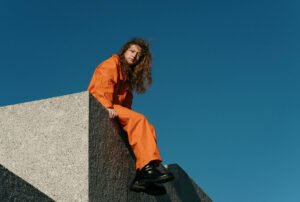
October 22, 2019, Wall Street Journal and the Guardian
On Monday, the Bronx Supreme Court heard the argument that Happy, a 48-year-old elephant from Thailand who is confined in the Bronx Zoo, should be released as a person under Habeas corpus—the right for a human being to escape unlawful detention by appearing before a judge.
Elephants are social creatures, but Happy is in her own enclosure with a fence separating her from another elephant, after an attempt to have Happy in with two other elephants did not suit her. Happy’s animal-rights attorneys believe Happy is not so content, having been confined to one acre almost her whole life. In order to get her out of the zoo, they have applied to the courts for personhood.
Steven Wise, the founder and lead attorney of the Nonhuman Rights Project who has been working on the case for over a year, would like to move Happy from the place she has spent decades of her life to an enclave of elephants in a sanctuary in Tennessee or California.
“Wouldn’t that just be like a larger prison?” asked the Bronx supreme court judge Alison Tuitt, who earlier in proceedings remarked that she had watched a TV show in which a lemur attacked its own reflection in the mirror. (Scientists have determined that Happy can recognize herself in a mirror.)
Sign up for our free newsletters
Subscribe to NPQ's newsletters to have our top stories delivered directly to your inbox.
By signing up, you agree to our privacy policy and terms of use, and to receive messages from NPQ and our partners.
The judge noted that the elephant is still eating, not demonstrating depression. Wise and the judge went back and forth briefly about giving guide dogs personhood. (Many pet owners would probably affirm their animals already have personhood.)
The Nonhuman Rights Project is a 23-year-old Florida-based nonprofit with around $1 million in revenue, which has been attempting to get some animals the right to bodily integrity and liberty, The organization has not been successful to date regarding the transition to personhood for any animals, though a New Zealand river and a portion of the Amazon rainforest in Colombia have been granted some rights.
Another nonprofit, Wildlife Conservation Society (WCS), operates The Bronx Zoo. The $1 billion organization “saves wildlife and wild places worldwide through science, conservation action, education, and inspiring people to value nature.” A WCS spokesperson stated that the elephant is not languishing or isolated. The zoo released a statement in 2006 that it would phase out its elephant exhibit.
The case will continue arguments in January 2020. In the meantime, Happy may be safer inside the zoo; a study has come out that reports one in four birds have been lost in what the authors call “widespread ecological crisis.” Three billion birds lost, with a majority of the remaining species endangered by climate change—and personhood may not save them.
Some laws do apply to the treatment of animals; 46 out of 50 states have felony penalties for animal abuse. This case attempts to bring animals to a higher level. (Or, at least some animals. This would create another set of issues if domestic farm animals were considered persons.) For more about the legal ramifications of human laws as applied to nonhuman litigants, we bring to mind the case of the “monkey selfie” that saw final resolution in 2018.—Marian Conway













